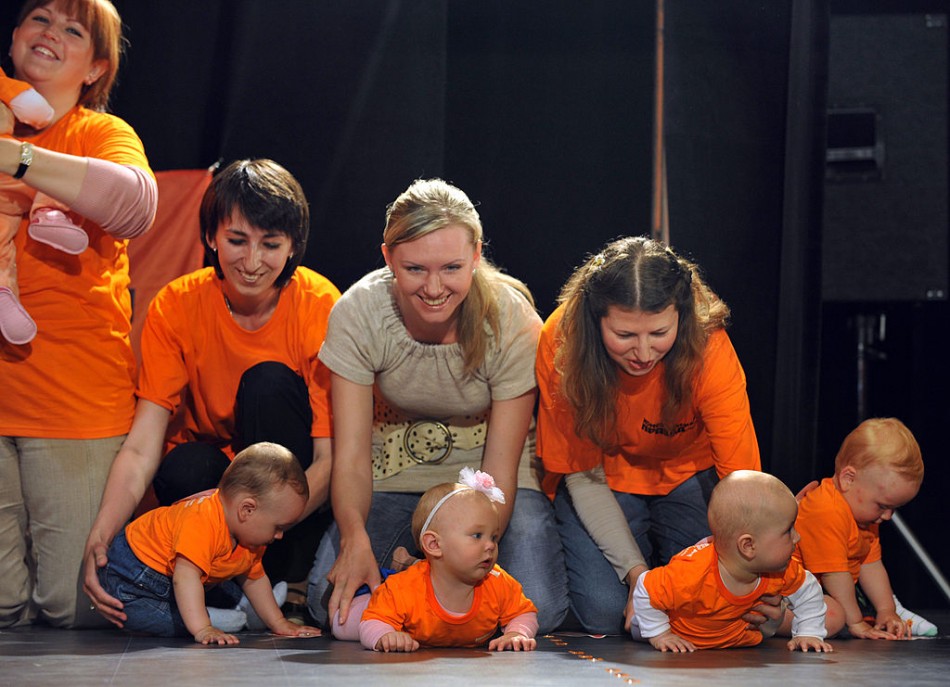When Do Babies Roll Over? Safety Tips for New Parents

Infants grow at differ rates, and developmental milestones provide a benchmark for comparing the baby's growth to the average expected progress of others in the same age group.
However, there is no need for concern if the baby progresses a bit faster or slower than the average pace.
One of the primary developmental milestones for babies is rolling over, including during sleep.
Why Do Babies Roll Over
Tummy time plays a crucial role in this process, starting as early as 0 months. This activity, performed while the baby is fully awake and under supervision, strengthens neck, head, shoulder, and back muscles.
Daily tummy time aids in the development of sensory-perceptual, balance, visual, and problem-solving skills, preparing the baby to eventually roll over and sit up.
As the baby's arms, back, and neck gain strength, she begins exploring different ways to move her body, with rolling being one of the outcomes.
According to Dr. Lauren Crosby, a pediatrician, rolling over is a crucial gross motor skill essential for building core strength, head control, and weight shifting.
It's important to ensure the baby's safety during activities associated with this milestone, such as diaper changes, as unexpected moves may lead to falls or other risks.
Babies often start rolling over around 4 months, with most mastering the skill in both directions by 6 months. Before rolling over, babies may display preparatory movements like rocking or rolling to one side.
To assist the baby in rolling over, providing regular tummy time is crucial for developing strength in the back, neck, and arms. Begin tummy time in the first week, gradually increasing the duration as the baby progresses.
Motivate the baby with engaging toys during tummy time, and demonstrate rolling movements to encourage her.
When babies begin rolling over in their sleep, continue placing them on their backs, even if they may roll onto their stomachs.
By 6 months, the risk of Sudden Infant Death Syndrome (SIDS) decreases remarkably. If concerned, try placing your baby in the crib on her back or side with one arm extended to reduce the likelihood of rolling fully onto the stomach.
What's Next After Rolling Over
After the baby learns rolling over, they will advance to sitting up, crawling, standing, and eventually walking.
Developmental milestones vary among babies, so it's essential to consult with your pediatrician and enjoy each distinctive stage of your baby's growth and discovery.
Babies typically begin rolling over at around 4 months, initially rocking themselves back and forth before progressing to rolling from tummy to back.
Encouraging rolling over involves various methods, including using the chest position, getting on the floor to engage with the baby, and incorporating rhythm and movement during tummy time.
Around 6 months, babies usually master rolling over in both directions, though developmental timelines vary.
While witnessing the baby roll over during the day is positive, concerns may arise when it happens at night. Consistent routines and gradual comforting can help them adapt to these changes.
Safe sleep guidelines recommend placing babies on their backs to prevent Sudden Infant Death Syndrome (SIDS). However, if a baby independently rolls onto their side or stomach during sleep, there is no need to intervene.
Once babies can roll independently, they possess the strength and awareness to adjust their position if needed. If the baby is struggling to roll back over or seems uncomfortable on their stomach, gently help them.
Always watch the baby during tummy time to minimize the risk of SIDS.
Safety measures include stopping swaddling once babies start regularly rolling over, ensuring a hazard-free sleeping environment, and looking for any developmental concerns.
Regularly evaluating the baby's developmental milestones and promptly addressing any issues with a healthcare professional is essential for their overall well-being.
Related Article: Baby Rashes 101: Essential Prevention Techniques for Healthy Skin
© 2024 ParentHerald.com All rights reserved. Do not reproduce without permission.
